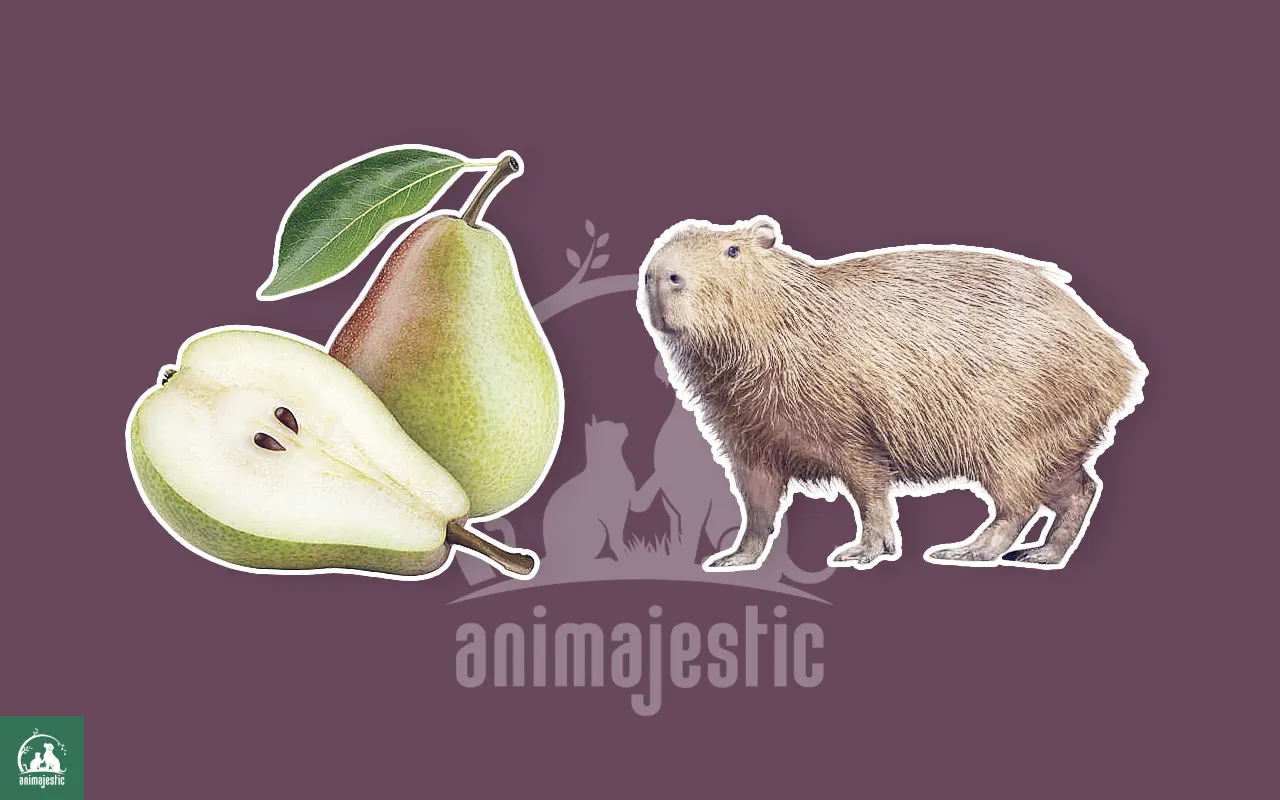Today, our exploration brings us to a commonly asked question: Can capybaras eat pears? Capybaras, nature’s gentle giants from South America, are a remarkable species. As the world’s largest rodents, they hold a unique place within the animal kingdom.
Pet owners, capybara caretakers, or those simply fascinated by their gentle look, often find themselves curious about the ins and outs of their dietary habits – what is palatable and harmless, or potentially hazardous, for these intriguing creatures.
Let’s embark on an enlightening journey to unveil the views of capybara’s diet, focusing especially on their compatibility with fruits like pears.
Understanding Capybara Diet – Herbivores Extraordinaire
To fully comprehend the capybaras’ dietary allowances and restrictions, we must first understand their basic nutrition.
Capybaras are unapologetic herbivores – they feed exclusively on a variety of plant matter.
Here’s a brief glance at their typical forages:
- Grasses: Capybaras have a well-documented preference for tender grasses. This forms the majority of their natural diet.
- Aquatic Plants: Living largely by bodies of water, they have easy access and a certain fondness for water plants.
- Fruits: Capybaras do enjoy the occasional fruit treat, relishing the sweet breaks from their otherwise green diet.
- Bark: They also have a penchant for gnawing on soft tree barks and twigs.
- Grains: Some captive capybaras are given grain-based rodent pellets for added nutrition.
Can Capybaras Eat Pears?
So, is it possible for a capybara to nibble on a pear in between their crunchy meals of greens?
The answer is YES. Capybaras can safely consume pears.
Pears, like other fruits, are a wonderful source of essential nutrients including vitamins and fibers.
They are also rich in water content, providing a lovely hydrating snack for capybaras.
Let us delve into some crucial considerations while serving pears to capybaras:
- Washing, Peeling, and Coring: Always ensure the pear is thoroughly washed to eliminate any potential traces of pesticides or other harmful chemicals.
Furthermore, it is strongly recommended to peel off the skin and remove the core as the seeds in pears contain traces of a compound called cyanide.
While small, these traces can still be potentially harmful, so it is better to remove the core and seeds before feeding. - Moderation is Key: Keep in mind, while pears offer many health benefits, they can’t provide all the nutrients capybaras need.
Most importantly, fruits like pears are high in sugars which, if consumed excessively, can lead to health complications like obesity.
Hence, pears should be considered an occasional treat rather than a dietary staple.
The Importance of a Balanced Diet
While capybaras can enjoy a range of food, it’s crucial to ensure their diet remains balanced and nutritious.
Besides grasses and aquatic plants that should form the bulk of their diet, capybaras also need a range of other nutrition that could be found in fruits like pears, grains, and even barks.
Pet owners should always aim to replicate their natural diet to keep them healthy.
Consistently reaching out to an exotic vet to ensure an optimal balance in diet is advisable.
They can provide special recommendations based on your capybara’s health needs and help to adjust their diet when needed.
Conclusion: Feast Fit for a Capybara
In conclusion, capybaras can indeed enjoy pears along with many other types of food due to their herbivorous diet. However, as in all aspects of life, balance is key.
It’s essential to prepare fruits like pears properly and serve them sparingly to capybaras.
Ensuring the health and happiness of our fascinating, friendly capybaras is undoubtedly incumbent upon a thorough understanding of their dietary needs and providing them with a balanced and nutritious diet.
When in doubt, always reach for professional guidance from a trained exotic vet, creating a fulfilling and healthful meal plan for your capybara.
